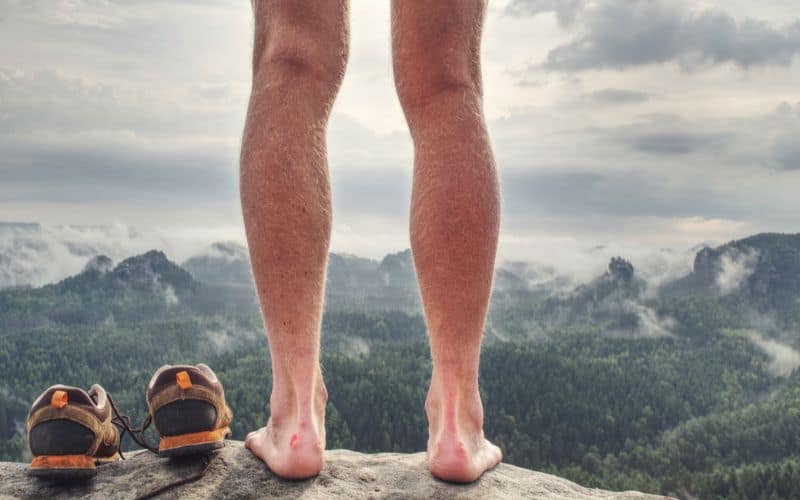Interested in hiking in your natural state but not sure where to begin? You might have questions like, “What about insects?” or “What about encountering other people?” or even “What about the risk of getting arrested?” While these are valid concerns, don’t let them deter you from trying this form of hiking. It’s a natural way to connect with our wilderness and fellow nature enthusiasts.
In this guide, we cover (or shall we say uncover) everything to know about nude hiking! We begin with the legal aspects of hiking in the buff, share valuable tips for a safe and comfortable experience, and address concerns you may have about having a naturist adventure. Also, find out when exactly World Naked Hiking Day is!
Do
Don’t
Table of Contents
Why Become A Nude Hiker?
Nude hiking, also referred to as naked hiking or naturist hiking, is hiking without wearing clothes. While unconventional, this practice is often embraced by those seeking a closer connection with nature and those adhering to the body-positive ethos of the naturist lifestyle.
Just like skinny dipping, hiking naked is a much more sensorial experience – especially in the rain. It gives you the chance to connect with parts of your body that are normally clad beneath layers of technical tops and Gore-Tex pants. Advocates of nude hiking often appreciate the liberating feeling of being fully exposed to the elements.
For many, the practice fosters a deeper appreciation for the beauty of the outdoors and a stronger sense of body positivity and self-acceptance. Nude hiking can also serve as a means of fostering mutual respect, camaraderie, and sharing experiences within the naturist community.
This practice is typically undertaken in secluded or designated areas where it is legally permissible, with enthusiasts often prioritizing respect for local laws, guidelines, and the comfort levels of other hikers who may be sharing the outdoor space.
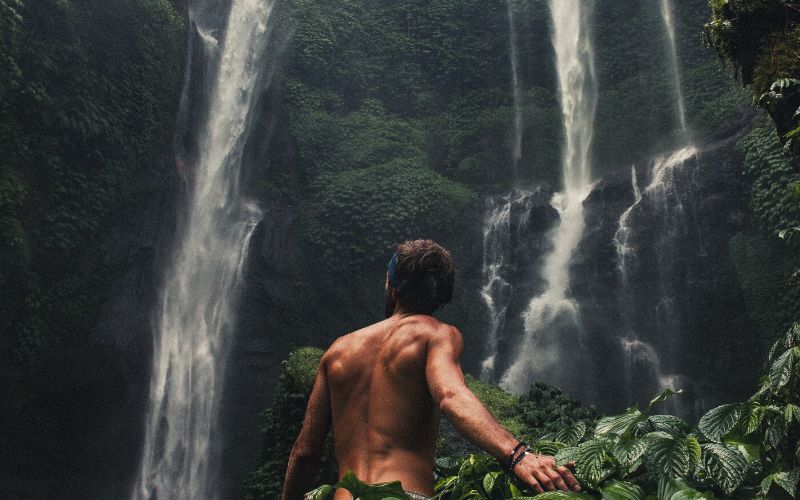
Is it Legal to Nude Hike?
This is a nuanced question, but, in essence, it largely depends on the location of your hike. Being nude, per se, is not illegal on federal land or in national parks. As long as public nudity is not intended to be malicious, devious, or done with the intention of causing or satisfying sexual arousal in others, then it aligns with federal law.
So, if you’re isolated in the backcountry and opt for an unclothed hike and you know you won’t see anyone, you’re in the clear.
However, complications quickly arise when you consider local laws. Every national forest, grassland, Bureau of Land Management area, and private land has its own laws. In many cases, despite federal laws not banning public nudity, these very well might.
Our suggestion? Do your research.
Call the forest service bureau of the place you plan to go hike to see if nudity is permitted. If they grant permission, try to get a physical record, too. If you get caught, by doing this, there is less chance of running into legal troubles with the local law enforcement officers.
Note, all local officials will assess on a case-by-case basis.
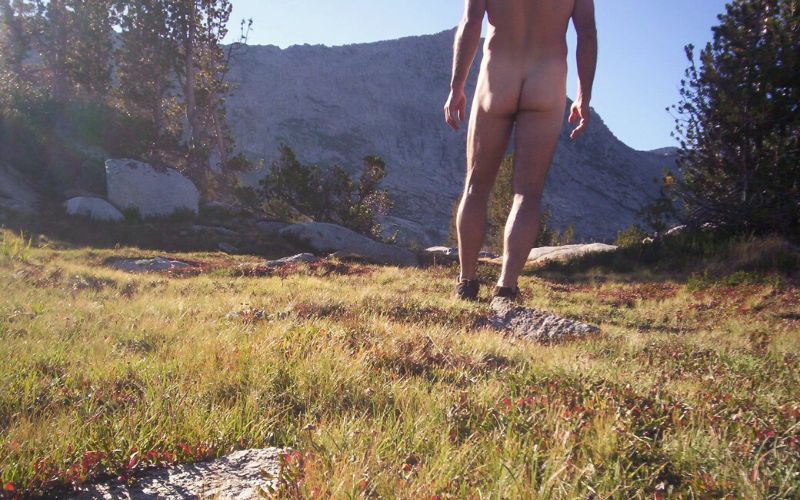
What Are Tips For Nude Hikers?
It may appear that fewer clothes means less planning; however, there are additional considerations to keep in mind when nude hiking. The following list outlines our top tips.
- Be Able To Cover Quickly
- Choose Wider Trails
- Hike In A Group
- Pick Remote Trails
- Head Out Early
1. Be Able To Cover Quickly
Carry a readily accessible towel or skirt so you can quickly cover yourself in case of any approaching hikers. You can easily slide on a skirt or wrap a towel around your waist. Remember, while nudity might not bother you, it can disturb others. Trails are for everyone.
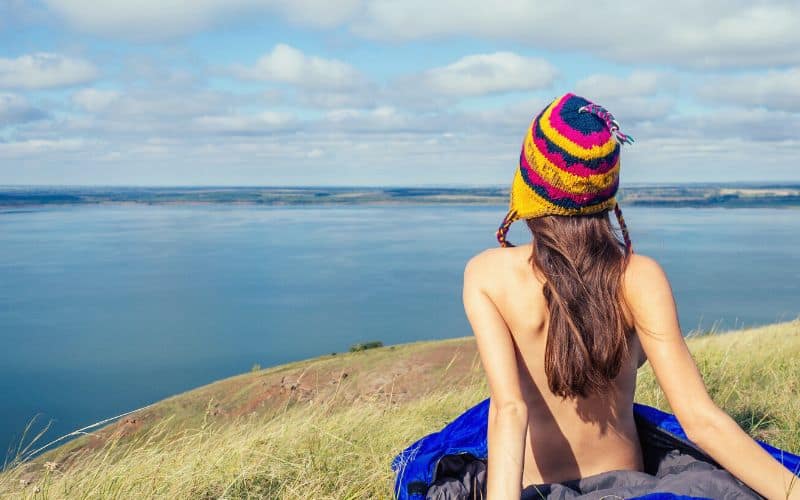
2. Choose Wider Trails
Since your body will be more exposed without the protection of clothing, opt for a wide trail that is free of prickly bushes, poison ivy, or long grass to avoid having to remove ticks from delicate areas. That being said, the woods can offer more protection from the sun. Either way, always bring sunscreen and bug spray.
3. Hike In A Group
Whether you’re a woman or a man, avoid hiking in the nude alone; always go in a group. Being part of a group enhances confidence, reduces the likelihood of confrontations with other hikers, and ensures overall safety on the trail.
Some group hikes are organized, with permissions obtained in advance. These groups may often send a clothed hiker ahead to warn oncoming hikers that a nude hiking group is approaching.
We’ve said it once, but we’ll say it again – hiking trails are for everyone!
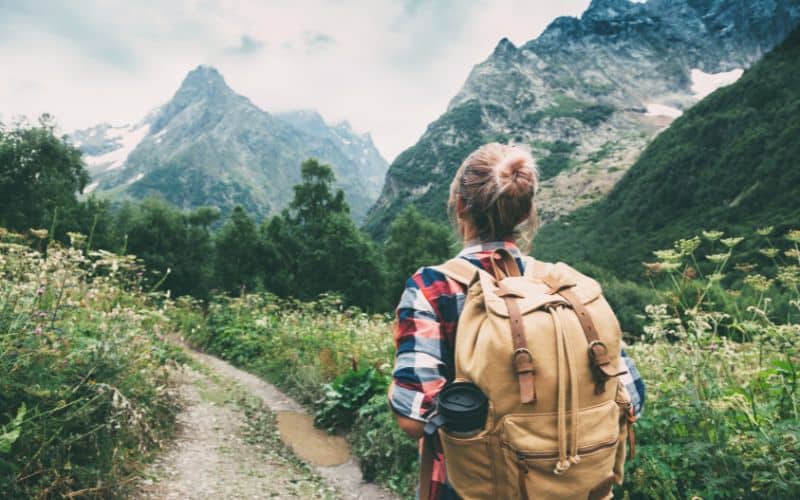
4. Pick Remote Trails
Choose trails in remote locations for a more solitary and uneventful hike. If heading to a national park, opt for less frequented trails and avoid busy or public areas to minimize encounters with children, families, or large crowds.
5. Head Out Early
Setting out early in the morning is another wise strategy to avoid the larger crowds that typically appear later in the day. However, if you reach the trailhead and find it already crowded with minivans and cars, it’s advisable to put your clothes back on and save the naked hike for another day.
What Are Concerns for Naked Hikers?
Along with the benefits of naked hiking, there are also some drawbacks as outlined in the following list.
- Physical Ailments
- Confrontation
- Local Authorities
- Peer Pressure
1. Physical Ailments
Without clothing, your skin is exposed to the sun, bugs, bushes, and thorns, increasing the risk of physical ailments such as sunburn, contact with poison ivy or oak, and the need to remove ticks from your unmentionables.
If you’re staying on classic, popular trails, we recommend wearing proper footwear. However, when you stop for a break, take off your backpack and those shoes and feel the earth beneath your feet. Now, your sense of touch from head to toe is engaged.
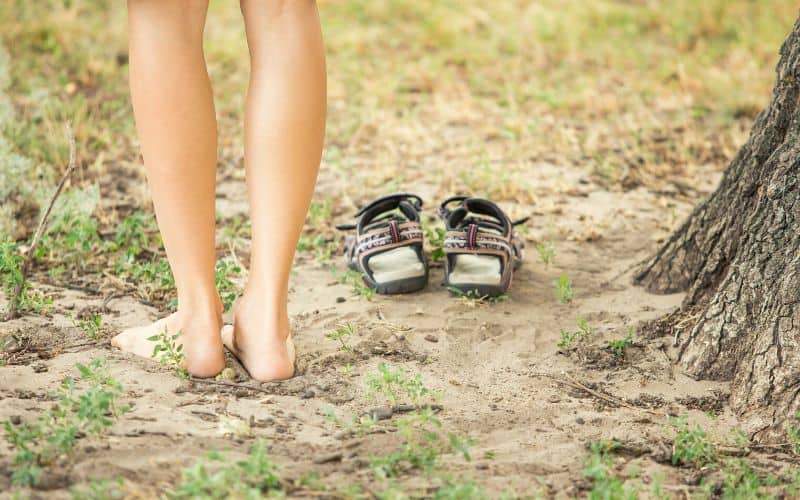
2. Confrontation
Confrontation on the trail is perhaps the biggest disadvantage of hiking naked. Even on a secluded trail, you may encounter individuals with a strong aversion to public nudity. If faced with a confrontational or aggressive hiker, maintain your composure, promptly dress, and attempt to defuse the situation as best you can.
3. Local Authorities
Despite taking all the necessary precautions to secure permission to hike nude, ultimately local authorities have the final say as to whether it’s acceptable or not. While the likelihood of approval is high, there is still a chance it may not be given.
4. Peer Pressure
Especially on Naked Hiking Day, some hikers might feel pressured by their peers to join in the fun. While it’s a great opportunity to step out of your comfort zone, it can also feel like a lot of peer pressure. If being naked or being around naked people makes you feel uncomfortable, that’s perfectly okay! You have the option to hike alone, begin early, or take a day of rest.
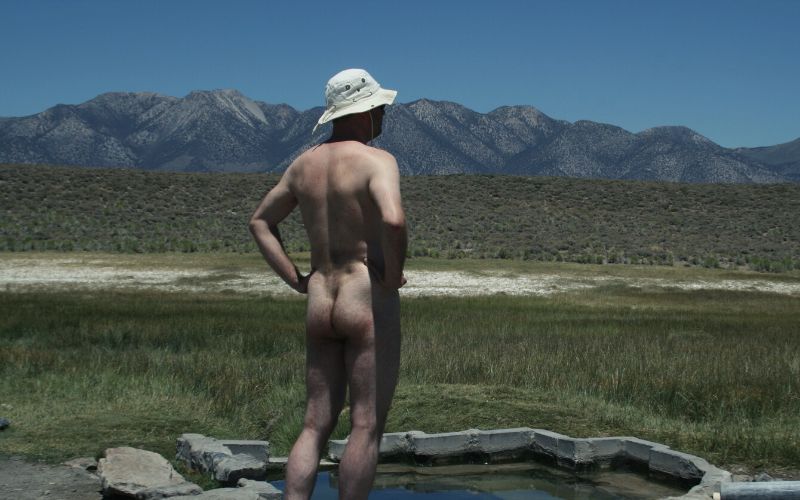
There’s A Naked Hiking Day?
Naked Hiking Day is an unofficial celebration on June 21st, the Summer solstice. Whether in Europe, the United States, Asia, or Canada, hikers all over the world gather in groups to celebrate the longest day of the year au naturale.
Many thru-hikers on the Appalachian or Pacific Crest Trail know of the unspoken ritual of hitting the trail naked on June 21 and see it as both tradition and a rite of passage too.
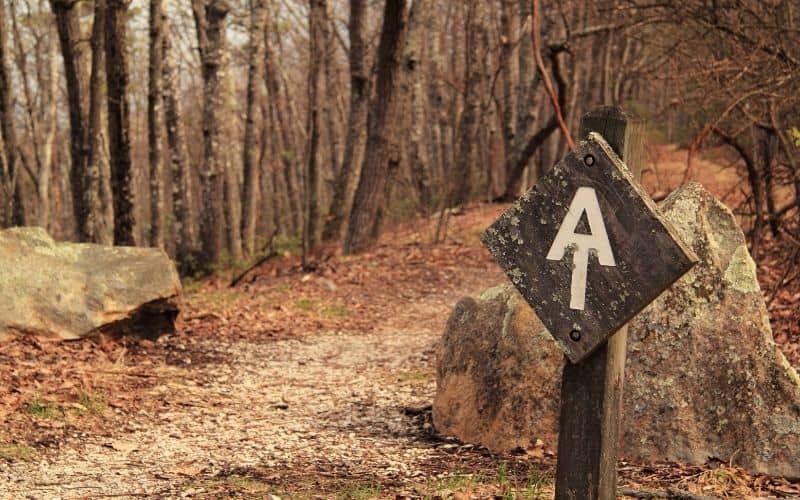
Ready To Go Naturist Hiking?
Hiking naked is one of the most liberating activities in the world. Connecting with nature in its purest form allows you to experience and appreciate new elements through touch, taste, smell, and sound.
Remember, before heading out into nature and packing away all your clothes in your backpack, make sure you plan ahead. If you’re heading into a national park, opt for a quieter hiking trail rather than everyone’s favorite hikes. Consult and familiarize yourself with the laws of your jurisdiction.
And, remember, just because you are naked doesn’t mean there won’t be clothed hikers on the trail. Treat every hiker with kindness and respect.
If you liked this post or know someone who is keen for a naked hike, feel free to share this article! Drop any questions or comments in the box below.
